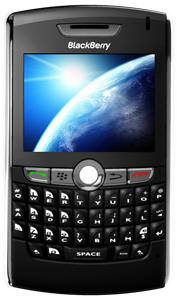Will BlackBerry devices continue to reign in the enterprise market?


The small firm I work at (just over 60 employees) has had Novell servers with the GroupWise application for email, calendar, tasks, etc. for a few years and it has been tough finding a clean way to keep devices in sync. More and more employees are trying to get work done and stay in touch out of the office and there is an increase in the usage of mobile devices. The Intellisync conduit for GroupWise has worked reasonably well for most people, but still isn't the best solution and often results in duplicates or won't sync. Our company is implementing Sharepoint and as a result is moving to Microsoft Exchange servers as well to take advantage of all of the available integration. I am quite excited about this move from a mobile perspective because we will now be able to use Microsoft Exchange ActiveSync with Windows Mobile, S60, and iPhone products.
In the past, it seemed the best way to get email on the go for a business was with a BlackBerry. With the recent BlackBerry outages and the compelling Exchange ActiveSync solution that works with a number of platforms I think people are taking a look at their reliance on BlackBerry devices. If you want to have BlackBerry service you need to subscribe to a voice and a BlackBerry data plan. The BlackBerry data plans are more expensive than standard data plans from most U.S. carriers. Also, if you are like me and switch devices often, then it is much easier to swap a SIM and still use that same Exchange ActiveSync account.
People may say that BlackBerry devices are reliable and their email always just works. I have been using Windows Mobile devices for years and for the last three I have to say that my Windows Mobile Standard/Smartphone (non-touch screen) devices have been ROCK SOLID. I currently have a hosted Exchange account with 4Smartphone that is great for keeping all my devices in sync. I have only been using a BlackBerry Curve for a couple of months and I have experienced two complete lockups for no apparent reason, compared to zero lockups on my T-Mobile Shadow since I bought it last fall. I think the argument for reliability is one made by people who have not had personal experience with both platforms. Either that or I am one very lucky user.
Security has also been a strength of RIM devices, but I think Microsoft now has those same security features available in Exchange ActiveSync and Windows Mobile.
The world of devices is expanding with the Apple iPhone, Google Android/Open Handset Alliance devices, and much more from Windows Mobile and S60. The iPhone is doing extremely well in the consumer market and with the Exchange ActiveSync and third party support coming soon in the next firmware update the enterprise market may start taking a good hard look at the iPhone too. Windows Mobile devices have better support for 3rd party applications than BlackBerry devices and their email implementation (with html support) and user interface is much better than the rather lame DOS-looking BlackBerry email client, IMHO. Even the older version of Internet Explorer Mobile is better than the BlackBerry web browser and both platforms can use Opera and other solutions.
RIM's BlackBerry devices have been great for the enterprise market in the past and I think really helped spur Microsoft into implementing their Exchange ActiveSync solution, but I don't think it will be a given in the future that the enterprise will choose BlackBerry devices by default. Do you think RIM will peak in 2008 or will they continue to rule in the enterprise market?